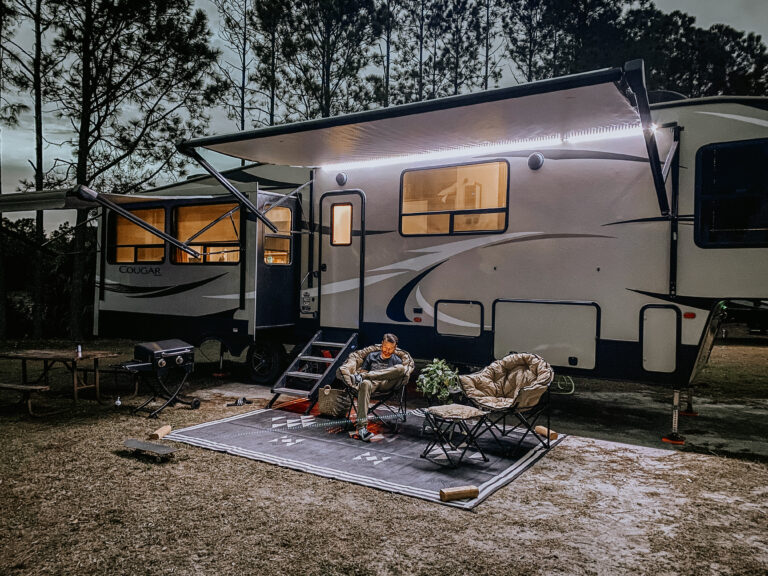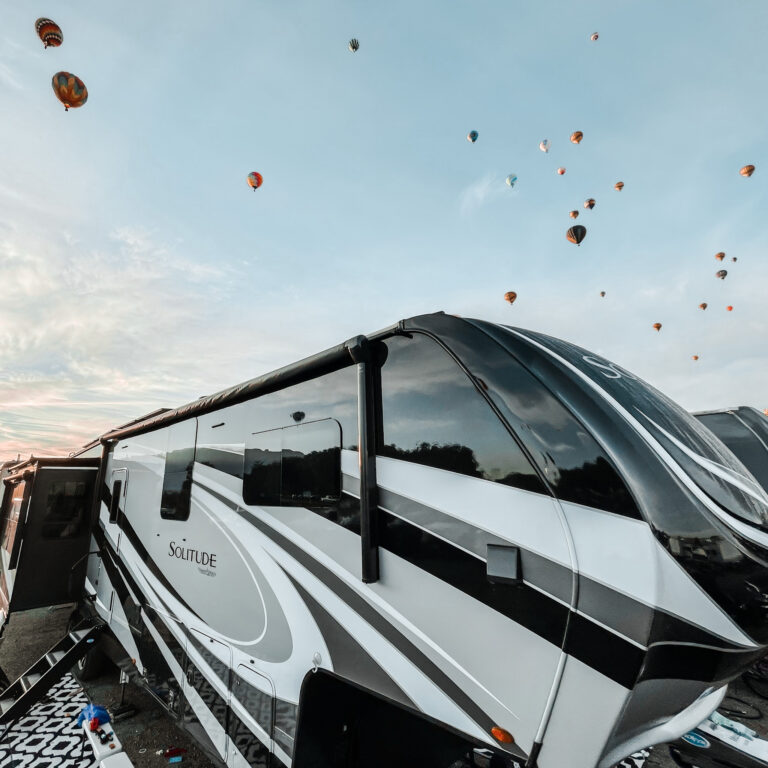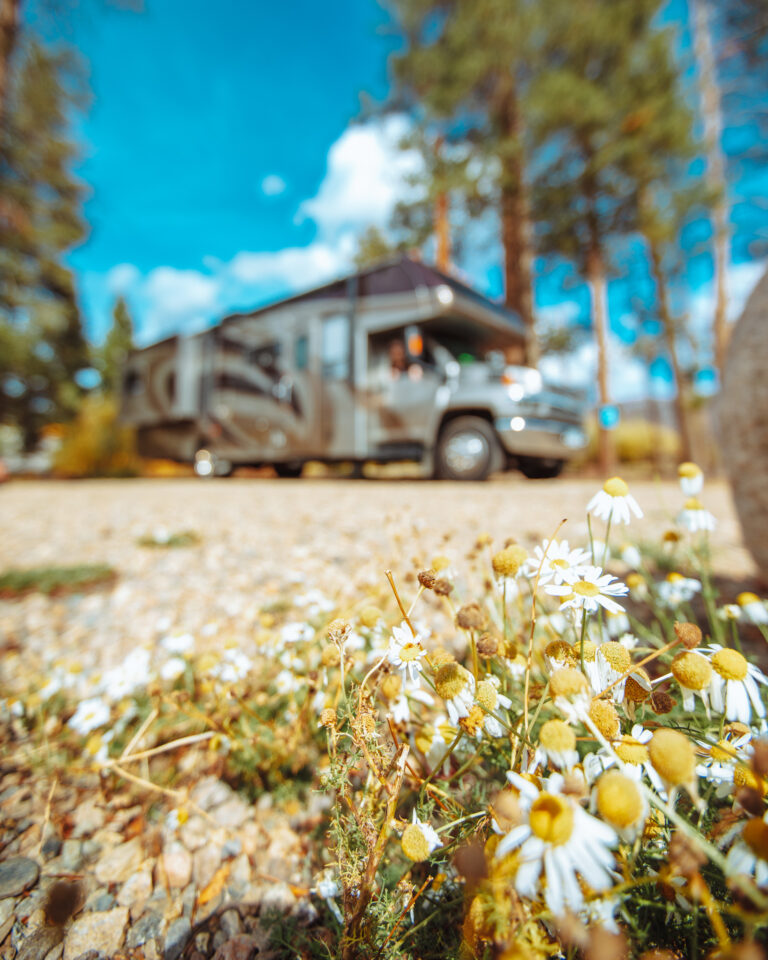
Unless you’re a trust fund baby or the inventor of the next mega-popular app or social media network, an RV is a major investment.
Even a small trailer will likely run you more than $10,000, and that’s before you take the tow vehicle into account. Additionally, since we’re talking about a recreational vehicle, your new home-away-from-home isn’t going to be building any equity. On the contrary, it’s nearly guaranteed that you’ll lose some money due to depreciation.
Now, none of that means you should give up on your dream of RV travel. Money isn’t everything, after all, and the liberation you’ll feel if you’re drawn to this kind of nomadic lifestyle is worth every penny.
But it does mean that it makes sense to go the extra mile to ensure your RV stays in good, working order as long as possible — especially since RV repair and mechanical service can be way pricier than you might first imagine.
Whether you RV full-time or rent it out on occasion, here are nine RV maintenance tips to help you extend the life of your RV and keep on happily camping as long as possible.
1. Use it or lose it!
You may initially balk at this first piece of advice. After all, isn’t driving your RV what causes normal wear-and-tear damage and increased depreciation?
But your entire investment is a total waste of money if you’re too afraid to take your RV out and enjoy it. And believe it or not, letting your rig sit stagnant can actually cause all of its systems even more damage than they’d see with regular use, from engines rusting out to tires deflating.
So get on out there and take an adventure. Embrace the fact that you’ll likely run into some maintenance issues on the road, but know it’s still better for your rig than sitting idle — and also that it’ll all be totally worth it.
2. Keep up with scheduled maintenance.
Just like your regular around-town vehicle, your RV needs regular oil changes, scheduled maintenance, and check-ups. Don’t let these fall by the wayside, even if you haven’t taken a camping trip in a while. Keeping everything up to date will help ensure your rig keeps running smoothly as it ages.

3. Check for leaks regularly.
Ah, leaks. Every RV owner’s nemesis.
Unfortunately, leaks are pretty much bound to happen, especially in older and used RVs. There are simply too many moving parts and cracks for water to seep in through.
But you can avoid paying the huge cost of repairing major water damage by catching those pesky problems as soon as they start. And that means conducting thorough investigations into all your RV’s seams and seals on a regular basis — at least before and after each camping trip, and once every couple of weeks if you want to do even better.
Feel with your fingers for any soft spots or cracks, and keep your eyes peeled for damp spots, discoloration, mold, and drips. If you should spot a leak, make sure you take care of it as soon as humanly possible — as in, same day. Trust us: it’ll only get worse.
4. Cover it up.
This one couldn’t be simpler, and it has the potential to add years to your RV’s lifespan.
Whether it’s under a canvas cover or in a spacious garage, keep your RV out of the elements when it’s not in use. Not only will this protect your paint job and keep water away from your rig (see list item number 3), but it can also help regulate your RV’s temperature while in storage, preventing seal damage from excessive heat build up.
5. Keep it clean.
No-brainer, right? But you’d be surprised how often owners dismiss this easy piece of RV maintenance.
Everything works better when it’s kept clean, and you’ll also be able to catch any mechanical problems early in the process of regular cleaning. (Not to mention the fact that your RV will be a joy to look at and a much more pleasurable place to sleep when it’s dirt-, dust-, and dog-hair-free!)
6. Keep it tight…
As many RVers point out, a motorhome is like a regular home that’s exposed to near-constant earthquake forces. Things are going to come loose — and that isn’t ideal for keeping your RV in tip-top shape.
So grab your screwdriver and a wrench and take a walk around your rig, tightening down everything from your awning to rooftop hatches. This will also help you get ahead of any water leakage a loose connection might allow for.
7. … but lube up moving parts.
Conversely, there are some parts of your RV you do want to keep nice and loosey-goosey. Moving parts like your side-out extenders and leveling jacks can get rusty and stuck, which is no fun to discover — and deal with — when you’re trying to set up camp after a full day’s drive.
So it’s a good idea to regularly treat your rig to a thorough lubrication. A dry silicone spray lube tends to work well and won’t attract too much dirt, and it’s also very affordable. Don’t forget your cabinet hinges and locks!

8. Thoroughly flush your holding tanks.
If you want to keep everything running smoothly — and when we’re talking about your RV’s sewer system, you definitely do — it’s important to do more than merely empty your tanks as they fill up.
Do a thorough flush of your black and gray wastewater holding tanks after each trip you take in your RV, or at regular intervals if you’re a full-timer. You’ll also want to clean and sanitize your potable water tank on a regular basis, too.
9. Don’t forget about your tires!
This is literally where the rubber meets the road, and it’s one of the most important safety considerations to keep in mind as an RVer.
But your RV tires are also pretty darn expensive, so checking their pressure, inspecting for leaks and imperfections, and maintaining them regularly can help ensure the safety of your wallet as well as your physical person.
No matter what kind of rig you have, how often you use it or where you’re headed, these tips and tricks will help you make the most of your trailer or motorhome. Safe, happy, and very lengthy trails to you, friends!

